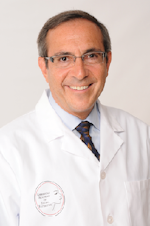Of the 25 topics I lecture about, no other seems to stir as much emotion as occlusion. It runs the gamut from orofacial "specialists" claiming that occlusion is not important in the treatment of orofacial pain, to the dental professionals who firmly believe that all muscle and neurological pain in the head and neck is the result of a dysfunctional occlusion.
How can all of these educated dental clinicians be so firmly cemented in their beliefs, and so passionate about how their occlusion and orofacial pain protocols are correct and everyone else's is wrong? What has always been interesting to me is they all have studies to back them up. They are all evidenced-based in their own eyes. When presented with scientific evidence that conflicts with their beliefs, they say that the conflicting studies are not valid and only the studies they have chosen as evidence-based are valid. I have sat with dental professionals who teach occlusion, and they will call their opponents liars and frauds.
It's time to take a deep breath and a step back when we talk and teach about occlusion. Nobody is completely right or wrong. Based on my 35 years of clinical experience and treating patients with occlusal dysfunctions and myofascial pain, and having educated dental professionals in restorative dentistry, occlusion, and orofacial pain, I can make this statement without qualification – if you are locked into one occlusal philosophy, you will have some clinical successes and failures. I will strongly say that you are not doing the best for all of your patients because while your brain may be locked into one occlusal philosophy, you have patients that will not fit into your limited view of occlusal treatment. When you are locked into one occlusal philosophy, you've lost the common sense necessary to treat a good number of your patients.
Occlusion is very important to the actual dentistry in terms of providing patients with a stable occlusion so they do not have too much force on any particular teeth, which could damage the teeth in the short or long term. Is occlusion the cause for most myofascial pain? Absolutely not, and it is ridiculous to think so. There are so many other factors associated with headaches, migraines, TMJ syndrome, and myofascial pain that are not based in occlusion. Once you have performed a simple occlusal equilibration, it's time to look at many other structures, such as muscles that the dentist can treat before performing any other irreversible procedures.
Now let's talk about the position of the temporomandibular joint, because that is the result of what many clinicians are trying to achieve to bring comfort to the patient. Why are we so locked in to having the TMJ in the exact same position on every single patient? Human beings aren't all built the same. If you want to learn about joints, I would suggest you have a discussion with medical experts who deal with joints. That would include orthopedic surgeons or medical professionals trained in physical medicine. No medical professional would think about placing any joint in the exact same position on every single patient. In dentistry, depending on which camp you belong to, you are either trying to force the joint into an anterior/superior position, or into a downward and forward position. You do this on every patient? Seriously? In medicine and dentistry, there is no one joint position that is right for every patient. There is a broad range in which every joint can successfully be placed for comfort and function.
It's time for dental professionals to take a common-sense approach to occlusion, TMD, orofacial pain, and dental sleep medicine. The American Academy of Facial Esthetics (AAFE) teaches in its Frontline Dental Sleep Medicine, Bruxism, and TMJ/Orofacial Pain courses that no one approach is right for every patient. Every dental clinician needs to learn frontline, minimally invasive, reversible treatment for TMD, orofacial pain, and dental sleep medicine before performing any irreversible procedures.
Louis Malcmacher, DDS, MAGD, is a practicing general dentist, lecturer, author, and dental consultant. An evaluator emeritus for Clinicians Report, he is the president of the AAFE. Contact him at (800) 952-0521 or [email protected]. Sign up for a free monthly newsletter at www.commonsensedentistry.com.






